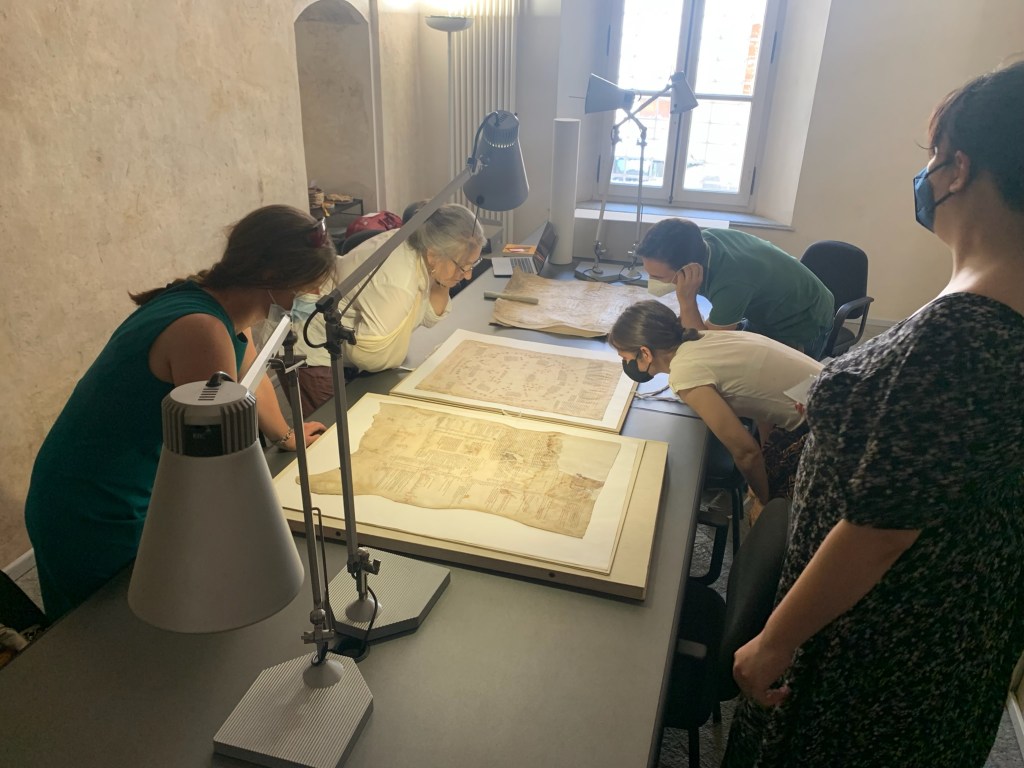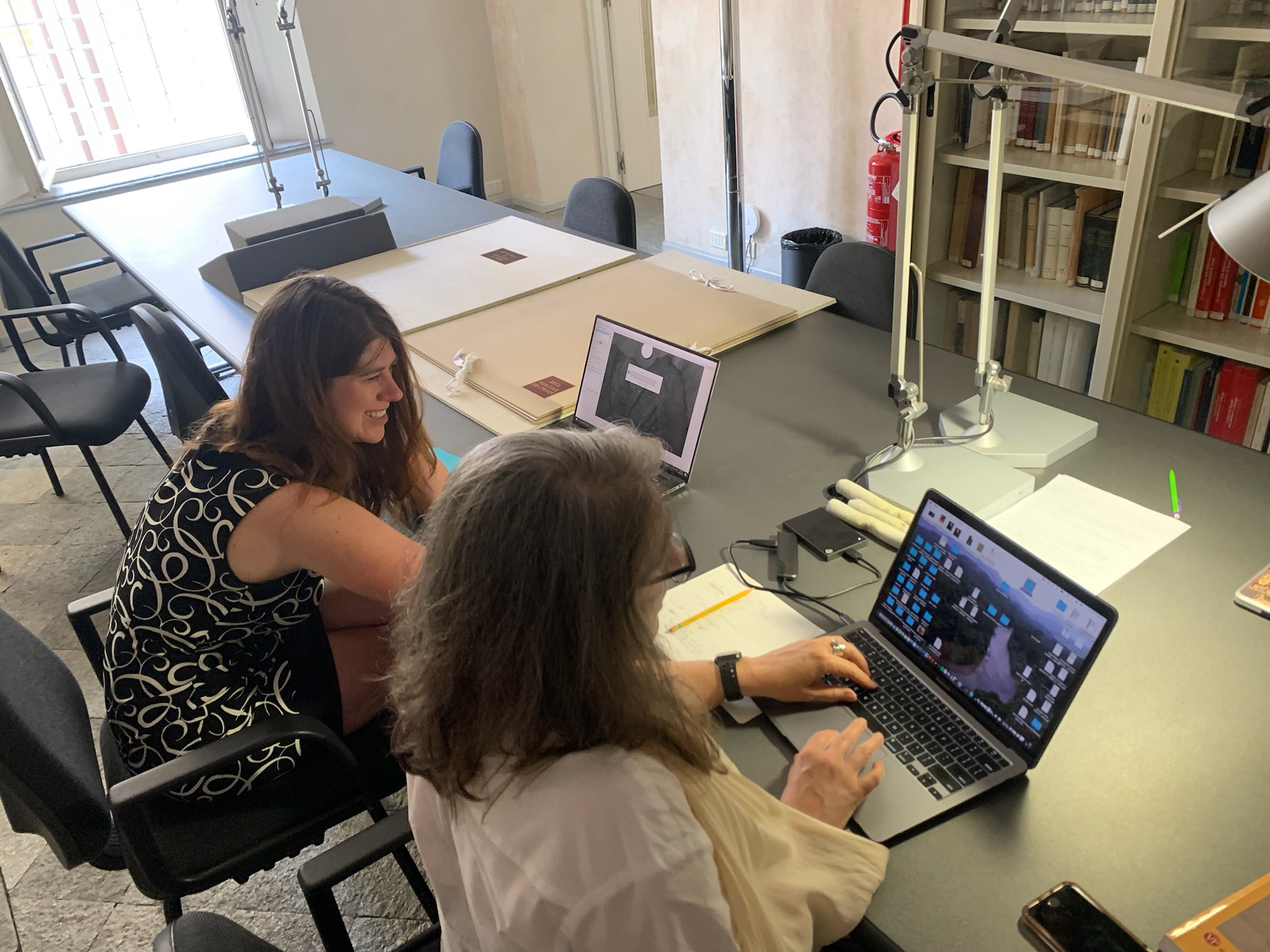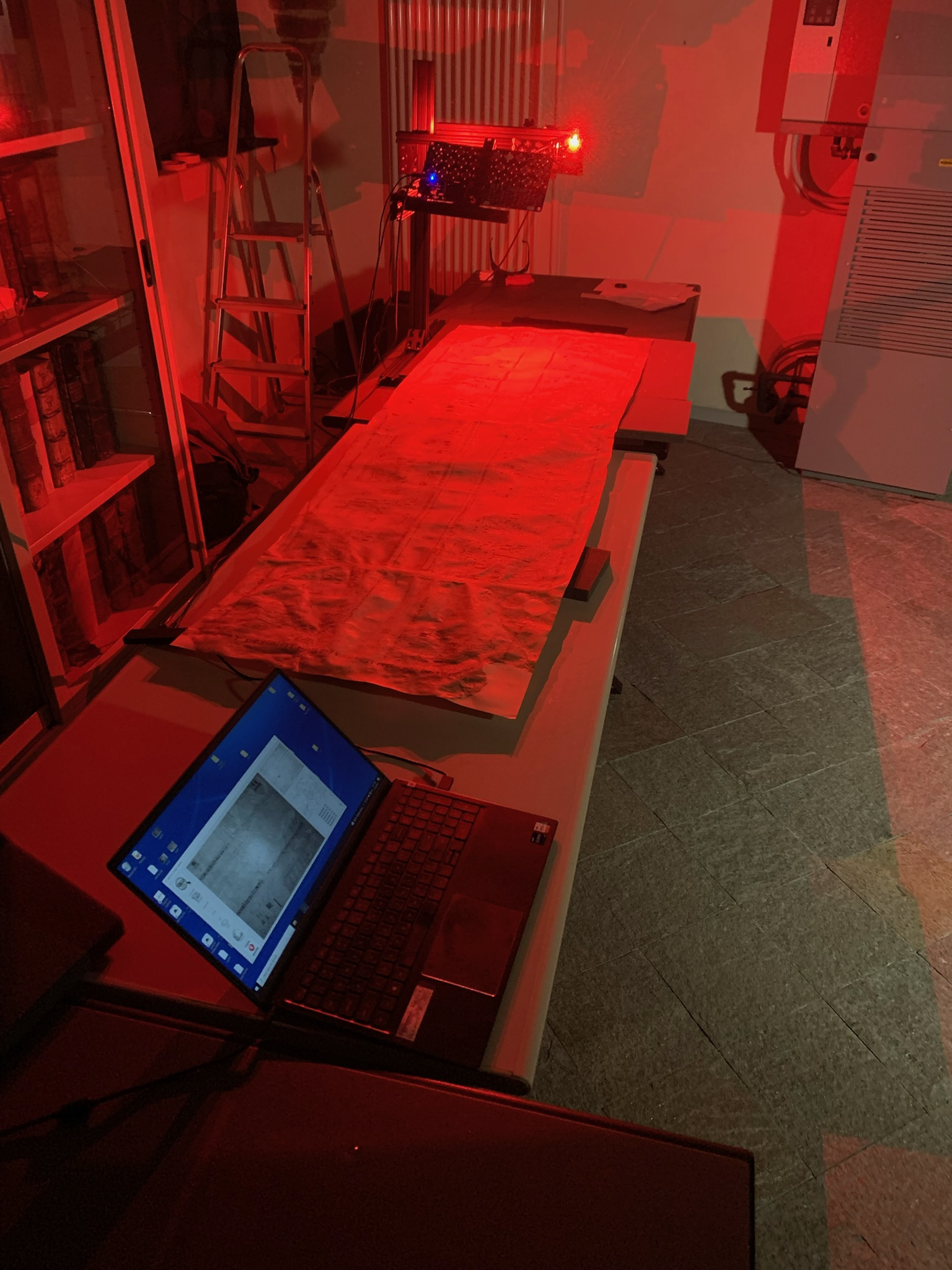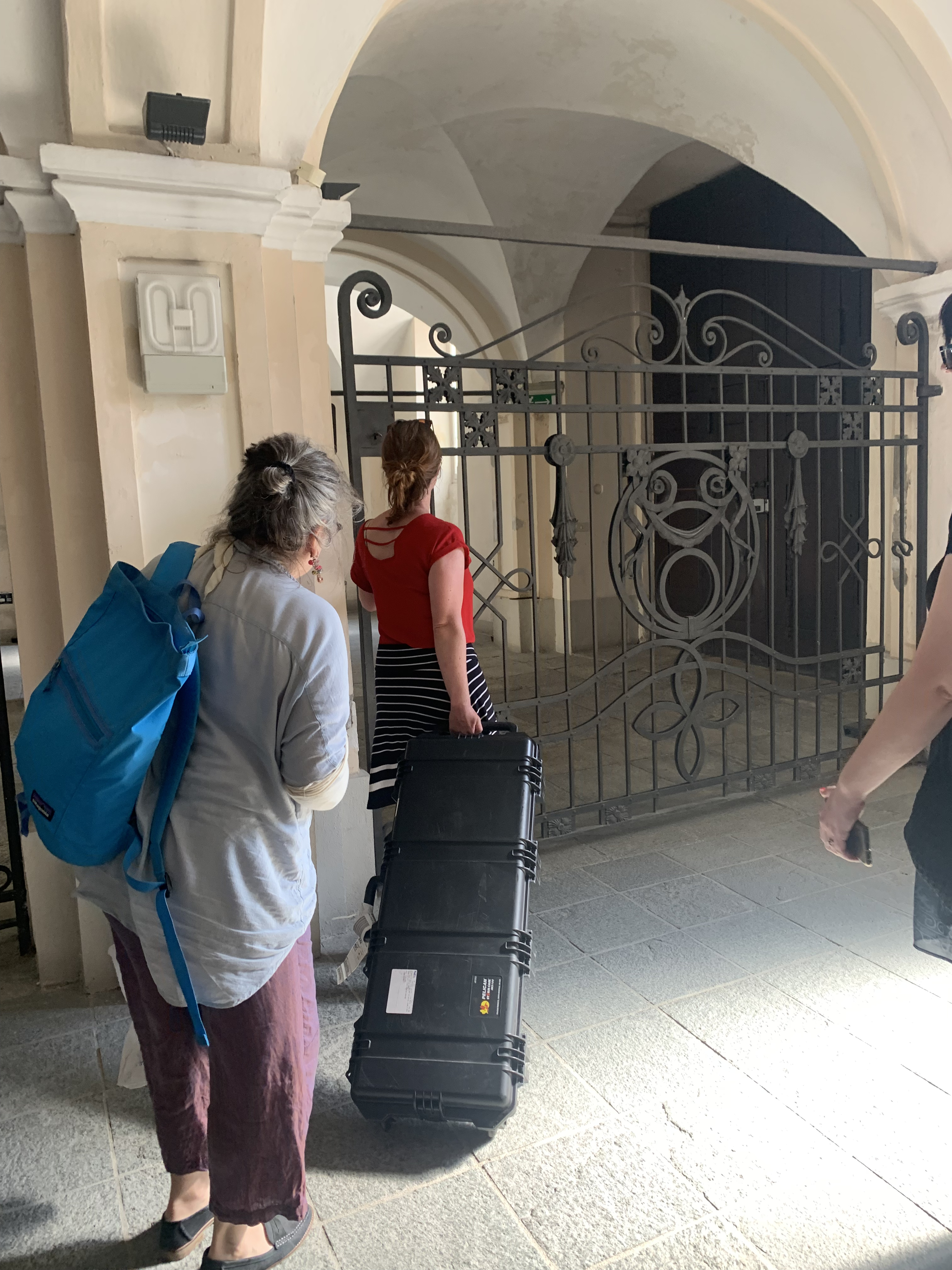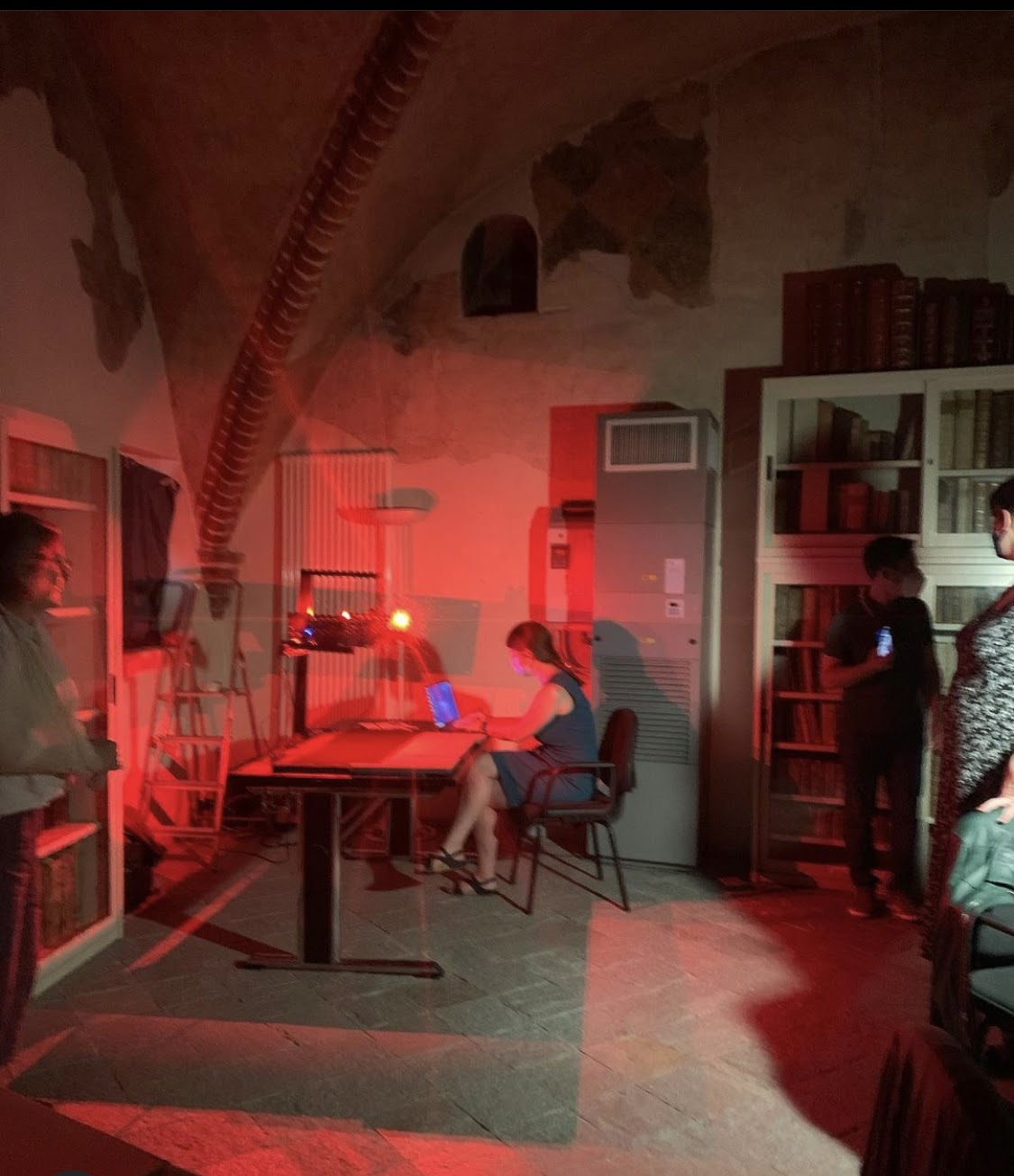What is Multispectral Imaging?
Imagine being able to see the invisible, uncovering secrets of medieval artifacts, manuscripts, and paintings that have been hidden for centuries. This innovative technology uses different wavelengths of light to peer beneath the surface of cultural treasures, revealing fascinating details that our eyes alone can’t see. It’s like having a time machine at our fingertips, allowing us to journey back through history and witness the early versions, hidden texts, and lost artistry of creations from another time.
In Videntes, we harness the power of multispectral imaging to breathe new life into historical texts. This isn’t just about looking at old objects in a new light; it’s about rewriting history with a more accurate, vibrant brush. Whether it’s unearthing a forgotten poem on the back of an ancient manuscript or discovering the original contents of a centuries-old drawing, multispectral imaging opens up a world of possibilities. It’s not just technology; it’s a gateway to the past, inviting everyone to be a detective in the grand mystery of human history. Join us as we embark on this thrilling adventure, using cutting-edge tools to uncover the stories that time almost erased!
What are we seeing?
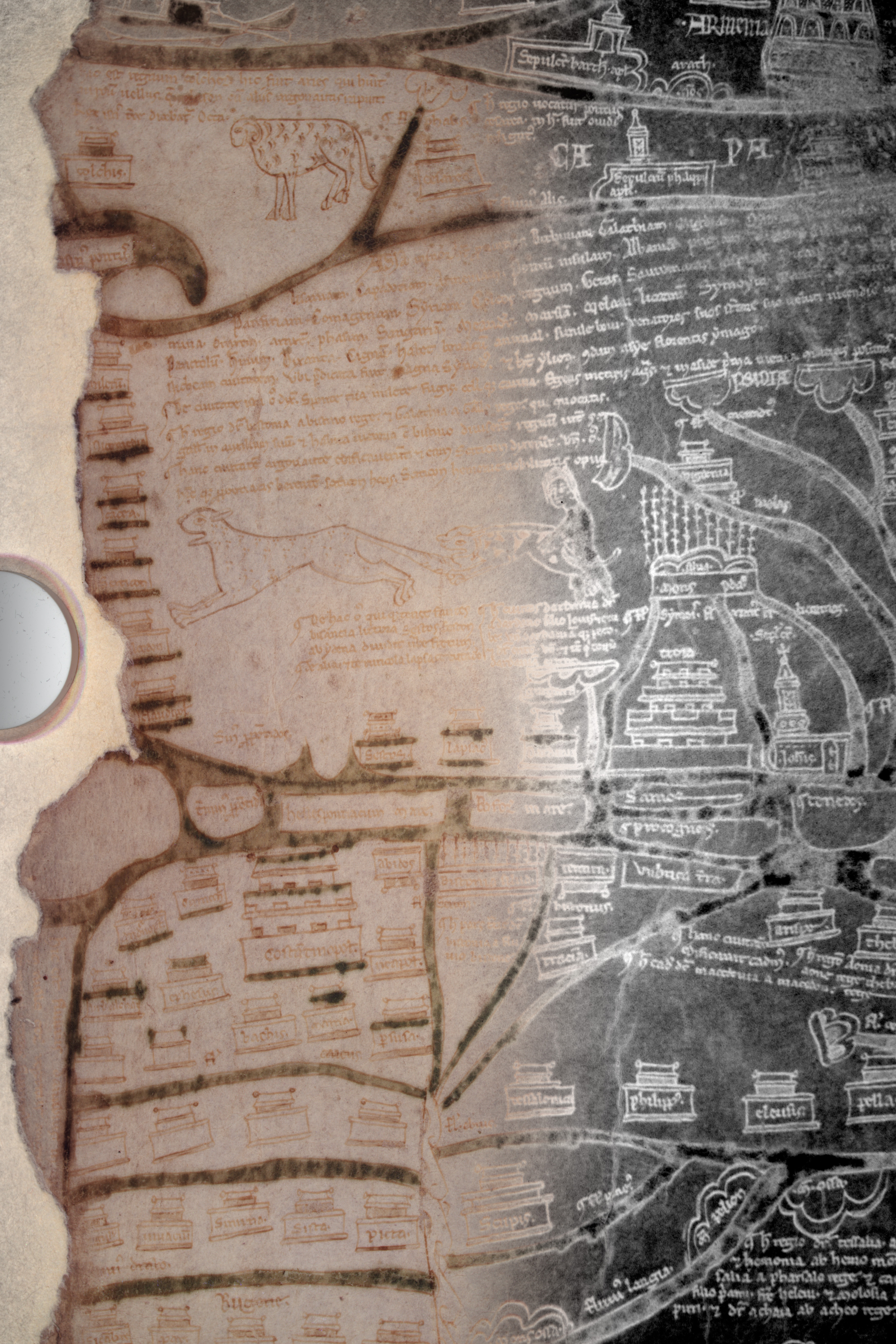
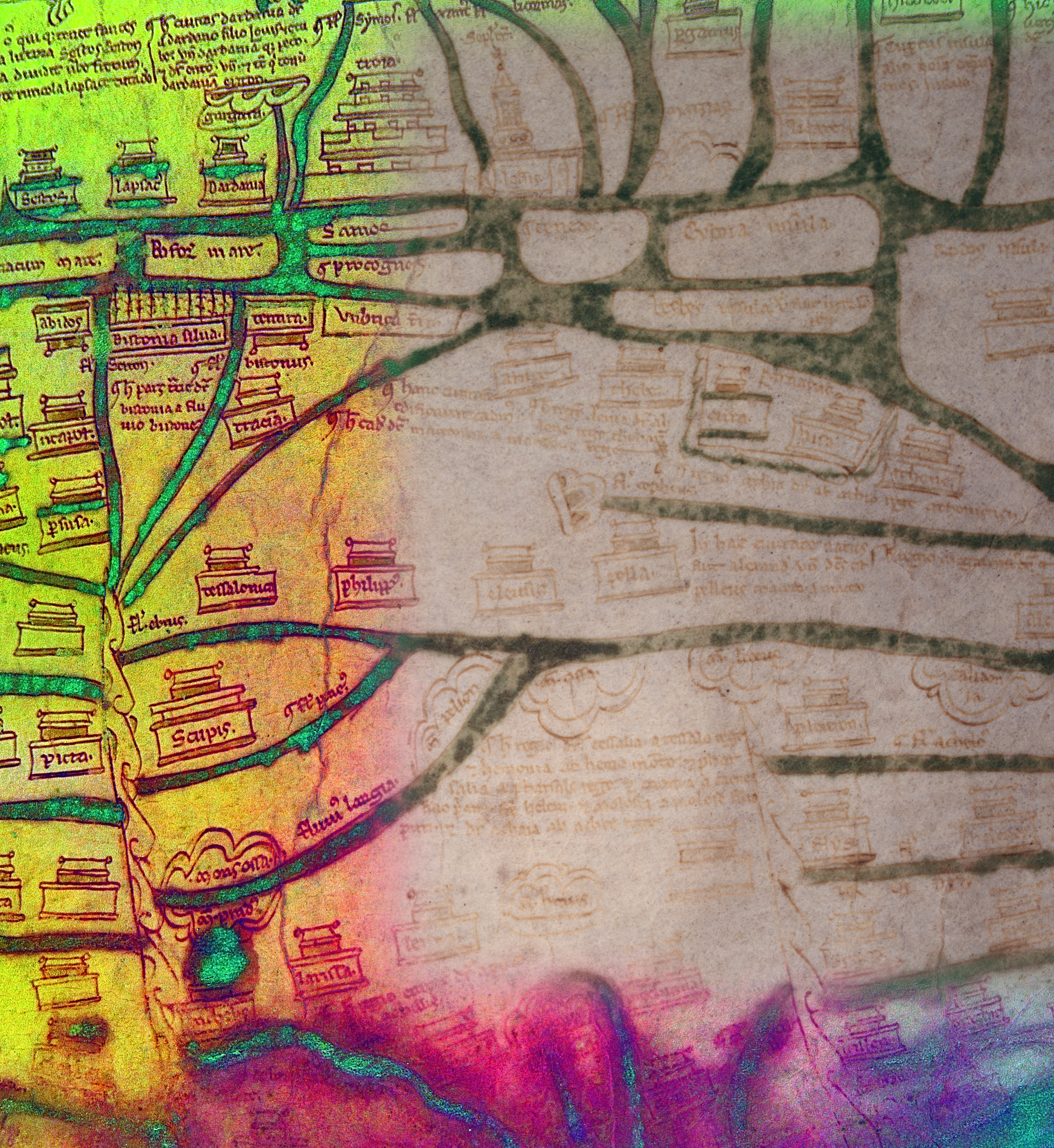
Who are the Videntes Team?
Established in July 2022 in Vercelli (Italy), Videntes: A Multispectral Imaging Collective includes scholars whose academic training varies from History and Literature, to Art History and Digital Humanities. Our teaching and professional service includes secondary and higher education, libraries and special collections, and collaborations with international project-based teams. Our teaching and professional service includes secondary and higher education, libraries and special collections, and collaborations with international project-based teams. Our name, Videntes (Latin, plural for the act of seeing), is evocative of our commitment to seeing together; to looking across disciplinary boundaries and historical chronologies, and to bringing attention to the medieval processes used to make handmade books (manuscripts) and the modern technologies that can be applied to those books and their places of use, such as multispectral imaging or photogrammetry. By seeing together we recover things lost, or unseen, and illuminate what mattered about an object in the past, argue what should matter to the present, and imagine what could matter for the future. In summer 2023 Videntes will returned to Vercelli to work in collaboration with Dr. Silvia Faccin, segratario and conservator of manuscripts for the Museo del Tesoro del Duomo e Archivio Capitolare.
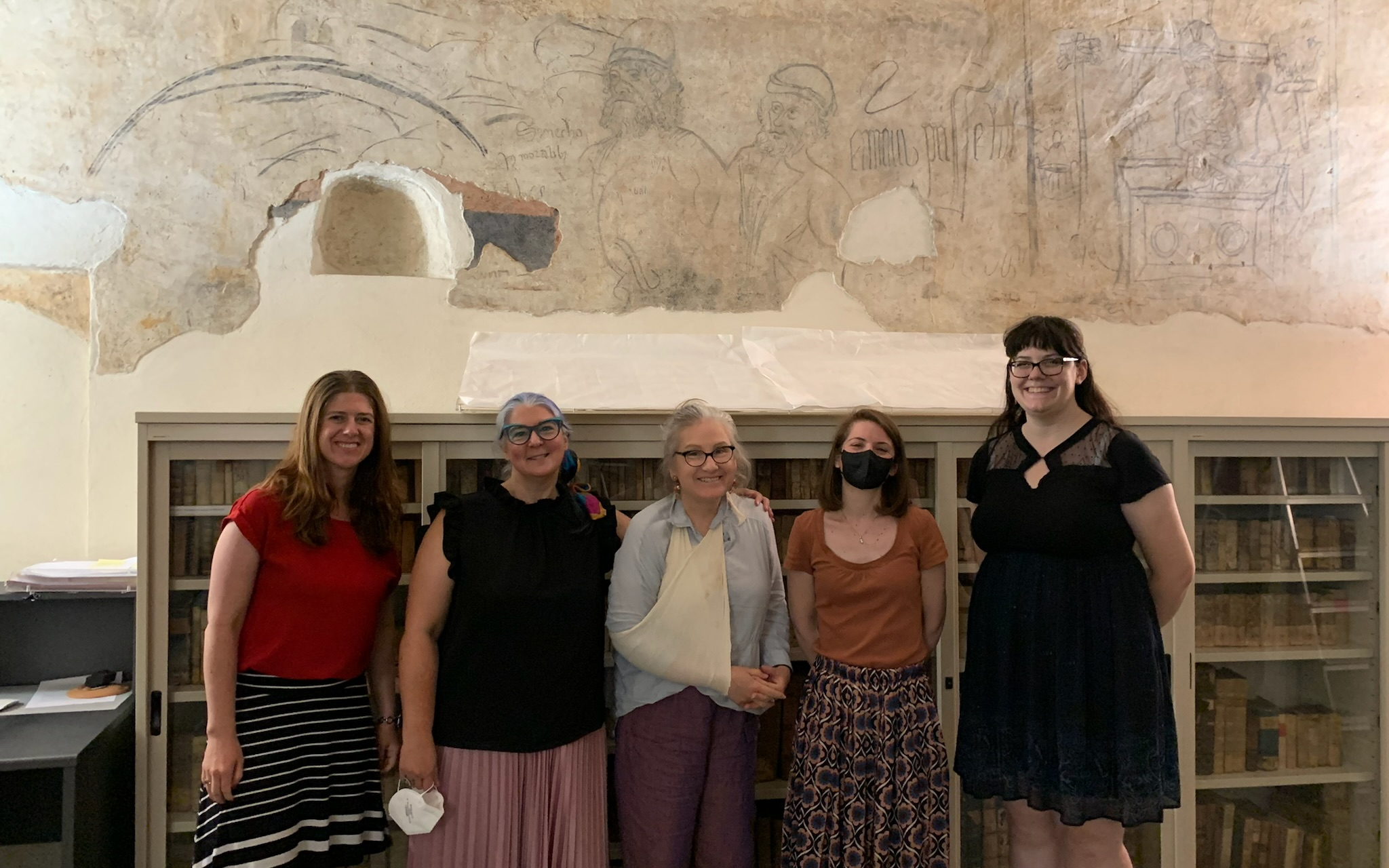
(From left to right) Helen Davies, Evan Gatti, Heather Wacha, Silvia Faccin, and Katie Albers-Morris pause for a photo in the Chapter Room of the Archivio Capitolare in Vercelli, Italy Summer 2022.
Helen Davies
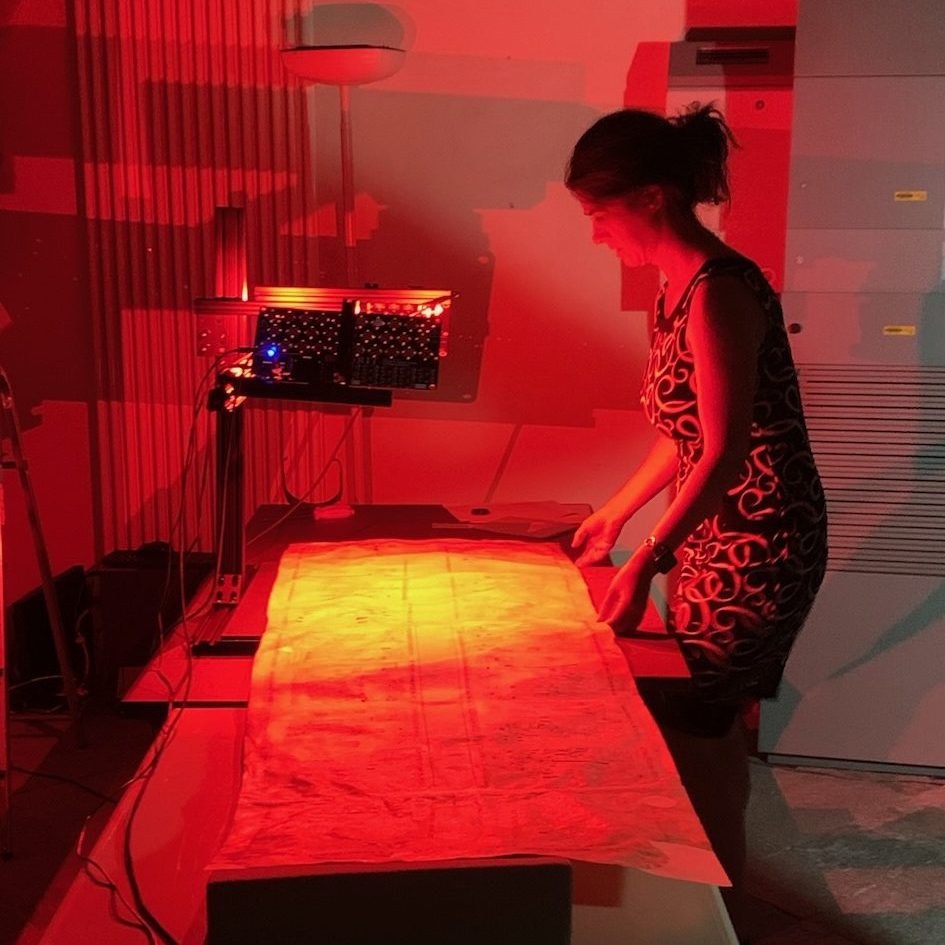
Dr. Helen Davies is an assistant professor of the Digital Humanities at the University of Colorado Colorado Springs where she teaches medieval literature and the digital humanities. She co-founded and now co-directs the Center for Research Frontiers in the Digital Humanities at UCCS. Helen’s research focuses on the intersection of the medieval and the digital humanities with an emphasis in multispectral imaging and historic cartography. Davies helped organize and project manage the Lazarus Project, a multispectral imaging cultural heritage recovery initiative, for six years on work throughout the US and Europe. There she helped with data collection, image processing, and training new interns. Davies helped organize and run R-CHIVE, an international multispectral imaging initiative, including their conferences for four years. Her work has appeared in Imago Mundi, Journal of the Early Book Society, Dark Archives and is forthcoming in Digital Philology, Manuscript Studies in William Blake, and Reading Medieval Maps among others. She and Dr. Heather Wacha have a new digital edition of the Vercelli Map forthcoming using Davies’s MSI data hosted on Digital Mappa.
Evan A. Gatti
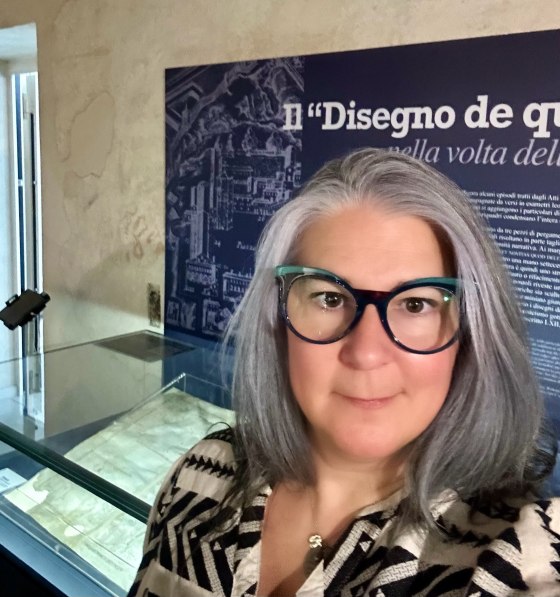
Dr. Evan A. Gatti, Professor in Art History at Elon University, specializes in medieval art with a focus on 11th-century art commissioned by bishops in connection and conflict with the Ottonian and Salian Empires. Gatti was the co-editor for Envisioning the Bishop: Images and the Episcopacy in the Middle Ages with Sigrid Danielson (Brepols 2014). Gatti and Danielson also co-authored a bibliography on Art in Italy for Oxford Bibliographies Online – Medieval Studies (2012). Gatti recently co-authored a book chapter (with Eliza Garrison) on the Quedlinburg Casket for A Companion to the Abbey of Quedlinburg in the Middle Ages (Brill Publishers, 2022) as well as an article on the portraits of Sigebert of Minden for Gesta. Gatti is currently at work on a project concerned with concepts of facsimile and historiography with a focus on the rotulus featuring scenes from the Acts of the Apostles held in the Archivio Capitolare in Vercelli with Videntes: A Multispectral Imaging Collective. Gatti is a founding member and former president of EPISCOPUS: The Society for the Study of Bishops & the Secular Clergy in the Middle Ages and works closely with the Power of the Bishop Conference and is co-editing their recent conference proceedings.
Heather Wacha
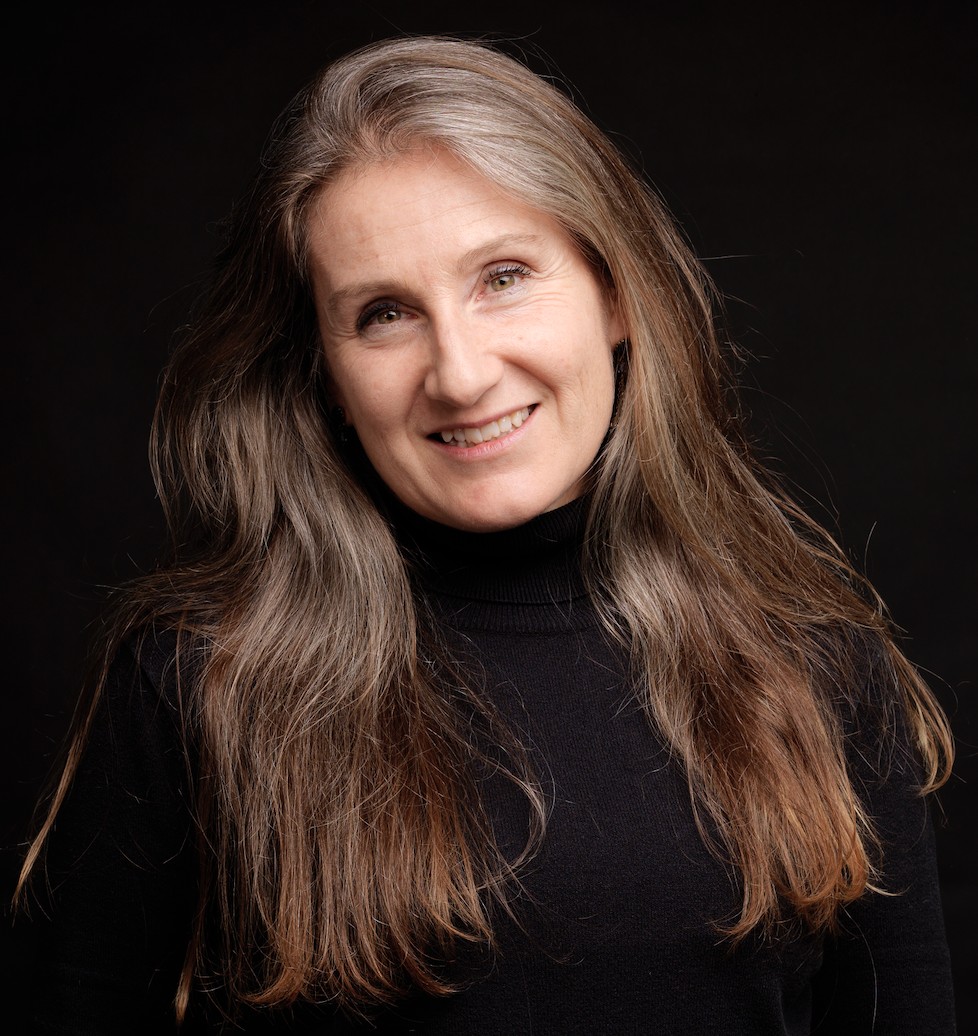
Dr. Heather Wacha holds an Honorary Research Fellowship at the University of Wisconsin, Madison. She is a senior co-editor of the Virtual Mappa project, a digital platform for fully annotated and edited medieval mappae mundi, hosted by Digital Mappa. She is also co-author of Intermediate Horizons: Book History and Digital Humanities and The Cartulary of Prémontré: A Dual Print and Digital Edition (July 2023). She has worked both on the Making and Knowing Project and the Library of Stains Project. Her articles have appeared in Imago Mundi, Digital Medievalist, La Revue d’Histoire ecclésiastique, Medieval People, and The Journal of Medieval Monastic Studies. Her current research interests lie in using multispectral imaging to recover data from medieval maps, most recently the Tournai Maps of Asia and the Holy Land, and the Vercelli Map. In collaboration with Dr. Helen Davies, she is working on a digital edition of the Vercelli Map, part of which has already been published in the Virtual Mappa project. With Videntes, she continues to research the relationship between the Vercelli map, its textual sources, the six scrolls associated with the map, and the Vercelli scriptorium during the mid to late thirteenth century.
Katie Albers-Morris
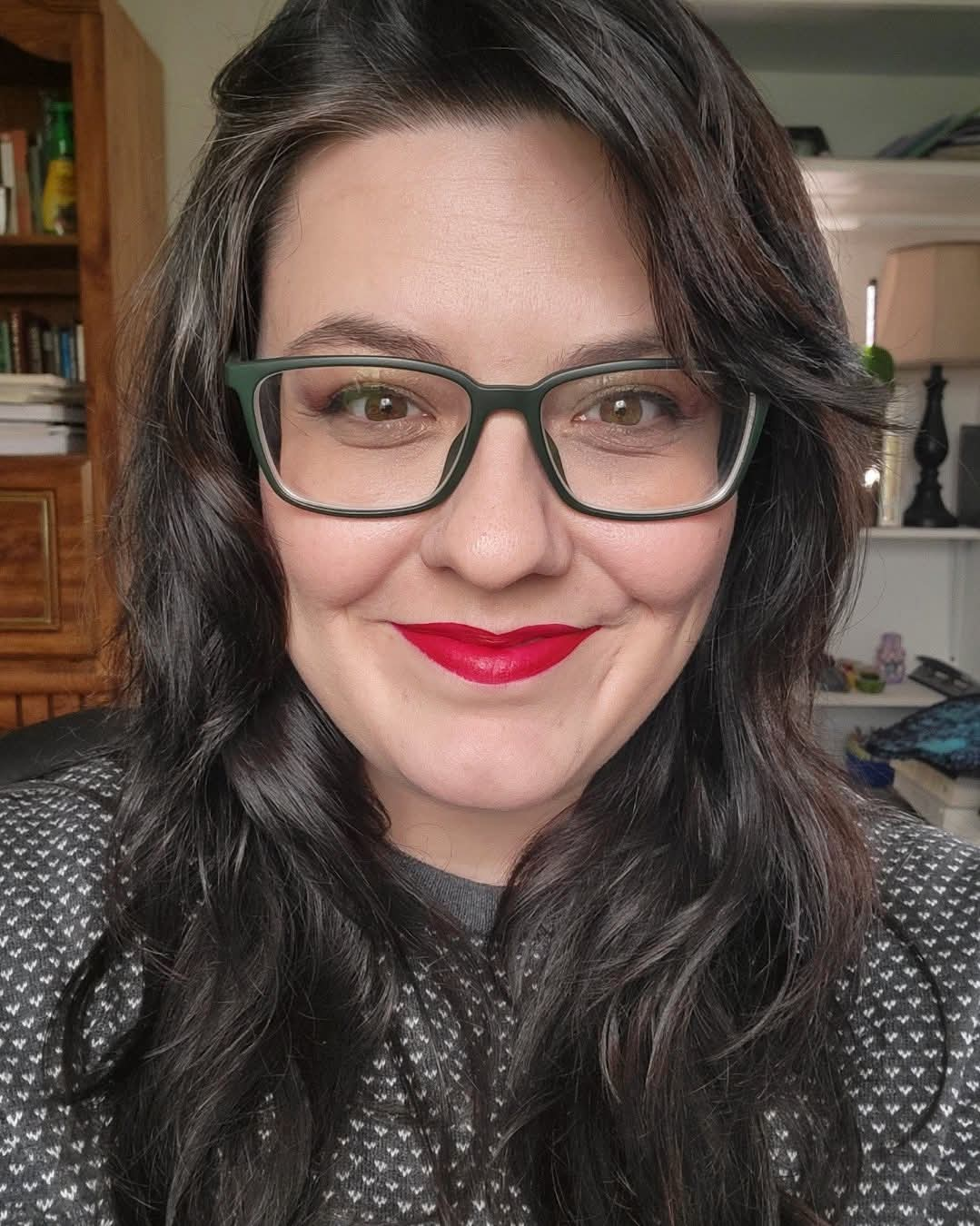
Dr. Katie Albers-Morris is an Assistant Professor in English at the Rochester Institute of Technology. She specializes in medieval literature and digital methods for literary study, including multispectral imaging, 3D modelling, and digital environments. She recently finished her PhD at the University of Rochester, after defending her dissertation titled Experiencing Arab-Norman Palermo: Close Reading Cultural Heritage in 2D and 3D. At University of Rochester, she was a project coordinator for the Lazarus Project, an Andrew W. Mellon Fellow in Digital Humanities, and participated in interdisciplinary projects such as The Smith’s Island Archaeology Project and the NEH grant ‘Black Past Lives Matter: Digital Kormantin’.
Kalani Craig
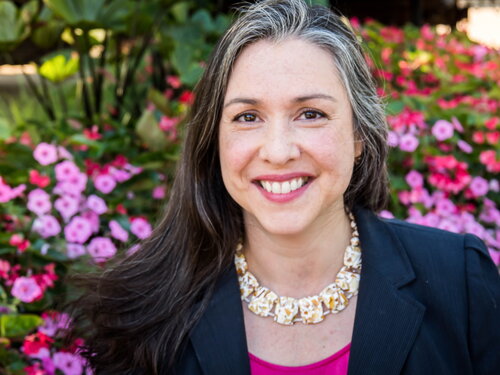
Dr. Kalani Craig is an Associate Professor of History at the University of Illinois Urbana-Champaign and specializes in writing history and codes tools for digital historians. Craig designs digital tools and platforms that shape new historical methods and help scholars undertake collaborative research, and model ways to engage the public using those tools. In 2024, Craig created and published DigitalArc Platform with a team of scholars and community partners to provide a tool-kit and minimal-computing website platform for community-owned storytelling and digital archiving. From 2017 to 2025, Craig was on the faculty in the Department of History at Indiana University Bloomington, where, from 2017 to 2024, she served as Co-Director of the Institute for Digital Arts and Humanities. Craig authored “Bishops and Balancing Acts: Divine and Human Agency in Gregory of Tours’ Vision of Episcopal Authority,” in Envisioning the Bishop: Images and the Episcopacy in the Middle Ages, edited by Sigrid Danielson and Evan Gatti (Brepols, 2014). Most recently, she co-authored “The Coded Language of Empire: Digital History, Archival Deep-Dives and US Imperialism in Cuba’s Third War of Independence” in American Historical Review (June 2024).
